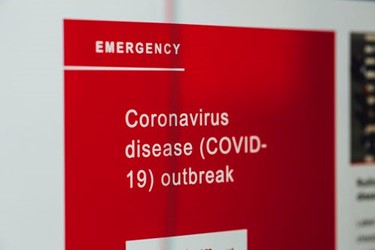Fighting COVID-19 is expensive. Medical costs for testing, medicines, and delivery of care are just the beginning. Social distancing, self-isolation, and quarantine collectively shut down large segments of the economy constitute, by far, the largest cost. A recession is “a significant decline in economic activity spread across the economy, lasting more than a few months, normally visible in real GDP, real income, employment, industrial production, and wholesale-retail sales.” “Recession” is an impersonal word summarizing very personal losses. A more detailed assessment recognizes that specific individuals and companies suffer.
The CARES Act:
Coronavirus
Aid
Relief &
Economic
Security
The CARES Act was implemented to provide fast and direct economic assistance for American workers, families, small businesses, and industries concerning the onset of the COVID-19 pandemic. In addition, the CARES Act supports:
- Loans to small businesses [$349B] (forgiveness for payroll, rent, and utilities, effectively turning into grants). Small businesses will be better able to
- Continue paying employees despite lower (even zero) revenue
- Maintain good commercial relations with landlords and energy suppliers
- Reopen when social distancing and gathering restrictions are relaxed.
- Loans to large companies [$454B] focused on businesses hit especially hard by the economic slowdown and designed to have the same benefits as the small business support. Some economists (behind Wall Street Journal paywall) are concerned about the precedent this may set.
- Support to state unemployment insurance programs [$250B] extending benefits from 26 to 39 weeks, increasing benefits by $600 per week for 4 months, including coverage for freelance and “gig” workers. For many workers, the increased benefits will exceed their regular earnings. Workers unemployed due to the coronavirus crisis will be able to:
- Buy food
- Pay rent and make mortgage payments
- Afford to comply with social distancing requirements
- Note: the generosity of this program may encourage workers to stay unemployed rather than go back to “work” with their employers who have taken the loans summarized above. So long as the connections between workers and employers are maintained, the objective of limiting disruption is achieved.
- Direct payments [$301B] to households ($1,200 to each adult with income under $75,000 a piece, plus $500 per child). This should make it easier for families (especially those under- or unemployed) to:
- Buy food
- Pay rent and make mortgage payments
- Afford to comply with social distancing requirements
- Note: this one-time direct payment appears to duplicate support to unemployment insurance and businesses. Some economists have pointed out this inefficiency.
- Grants and loans to airlines and air cargo companies [$61B] – (grants to cover salaries and benefits). Despite the dramatic decline in the demand for their services, these companies will be able to:
- Keep paying their employees
- Make payments to airports
- Maintain skeleton operations
- Be ready to operate again when the restrictions are relaxed
- Supplemental support for hospitals and veterans care [$117B]. Hospitals will be better able to:
- Cover the costs of COVID-19 care for the uninsured
- Pay staff idled by the pandemic (e.g., providers of elective hospital care)
- Resume regular operations when the pandemic wanes
- Aid to states [$150B] – state tax revenues will be much lower for the duration
- These grants, loans, and unemployment insurance supplements can’t prevent the recession, but they do change who bears the losses.
How Does This Affect You?
Single adults with a Social Security number and adjusted gross income of $75,000 or less are eligible. For married couples filing joint returns, the income limit to receive a stimulus check is $150,000. Single filers who make more than $99,000 and joint filers with income exceeding $198,000 are not eligible for stimulus payments, nor are those over 16 who are claimed as dependents by their parents (which includes many college-aged people). Most American adults will get a one-time payment of up to $1,200 and married couples will receive up to $2,400, though the exact amount depends on your income. Adults will also receive an additional $500 for every qualifying child. Note that your stimulus payment will be reduced by $5 for each $100 you make above the thresholds listed above. You do not need to apply to receive a payment.
The vast majority of federal student loan borrowers are eligible. However, some student loans do not qualify for this benefit, including loans under the Federal Family Education Loan (FFEL) Program, private student loans that are owned by commercial lenders, and some Perkins Loans that are held by the institution you attended.
The CARES Act expands unemployment eligibility to encompass most workers who have experienced job loss related to Covid-19. You may qualify if you are sick or have been exposed to the coronavirus; if you must care for someone in your immediate family who is sick with the coronavirus; if you cannot reach your place of work because of a quarantine; if you are an at-risk individual who needs to self-quarantine to avoid getting sick. However, if you continue to work remotely and receive a paycheck from your employer, it’s unlikely you’ll be eligible for unemployment. If you are asymptomatic (showing no signs of the disease) and are not part of a high-risk demographic but choose to stay home from work, you are also unlikely to be covered by unemployment.
Do you have more questions about the CARES Act and how it will affect your tax or financial situation? Reach out to the experienced team at Hayes & Associates. We’d love to help out.




